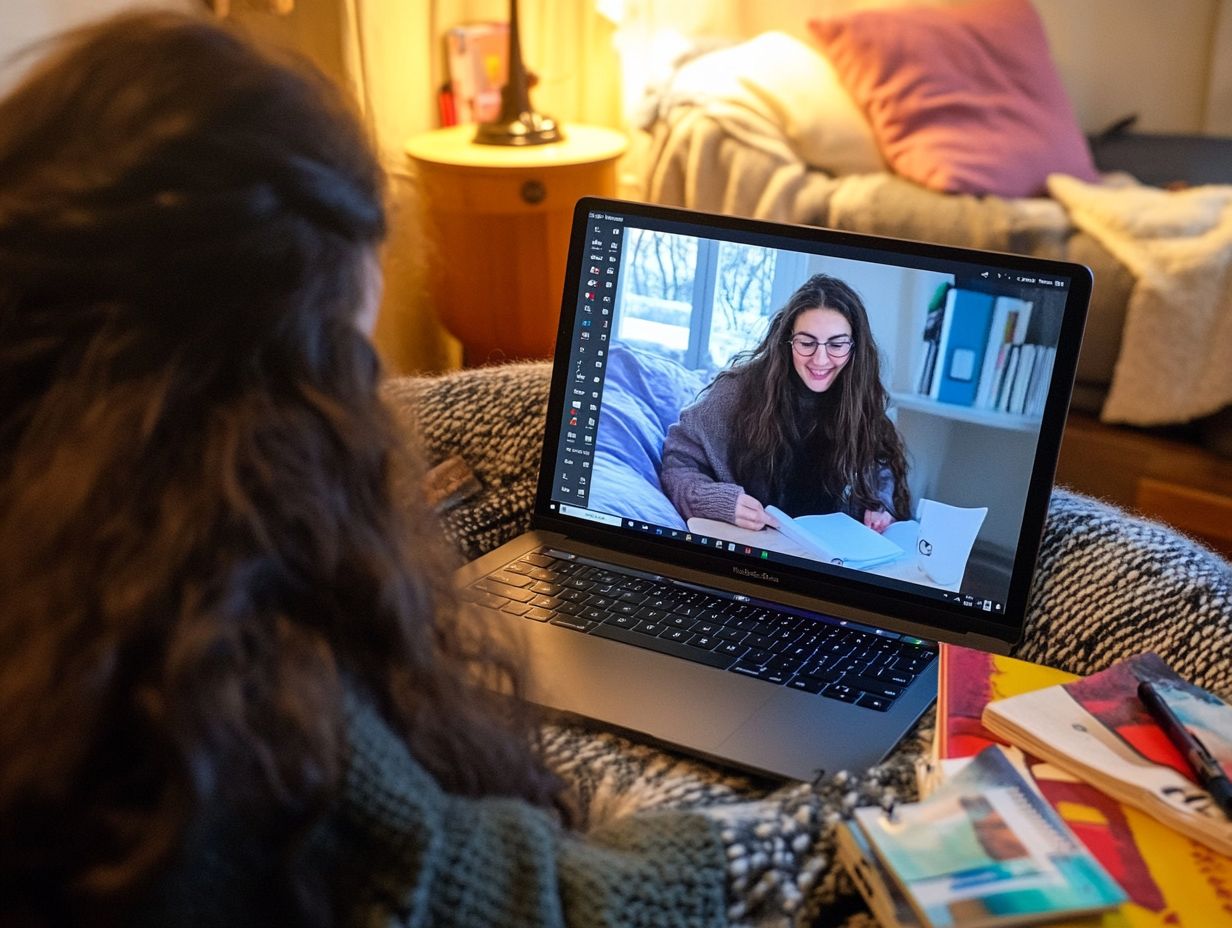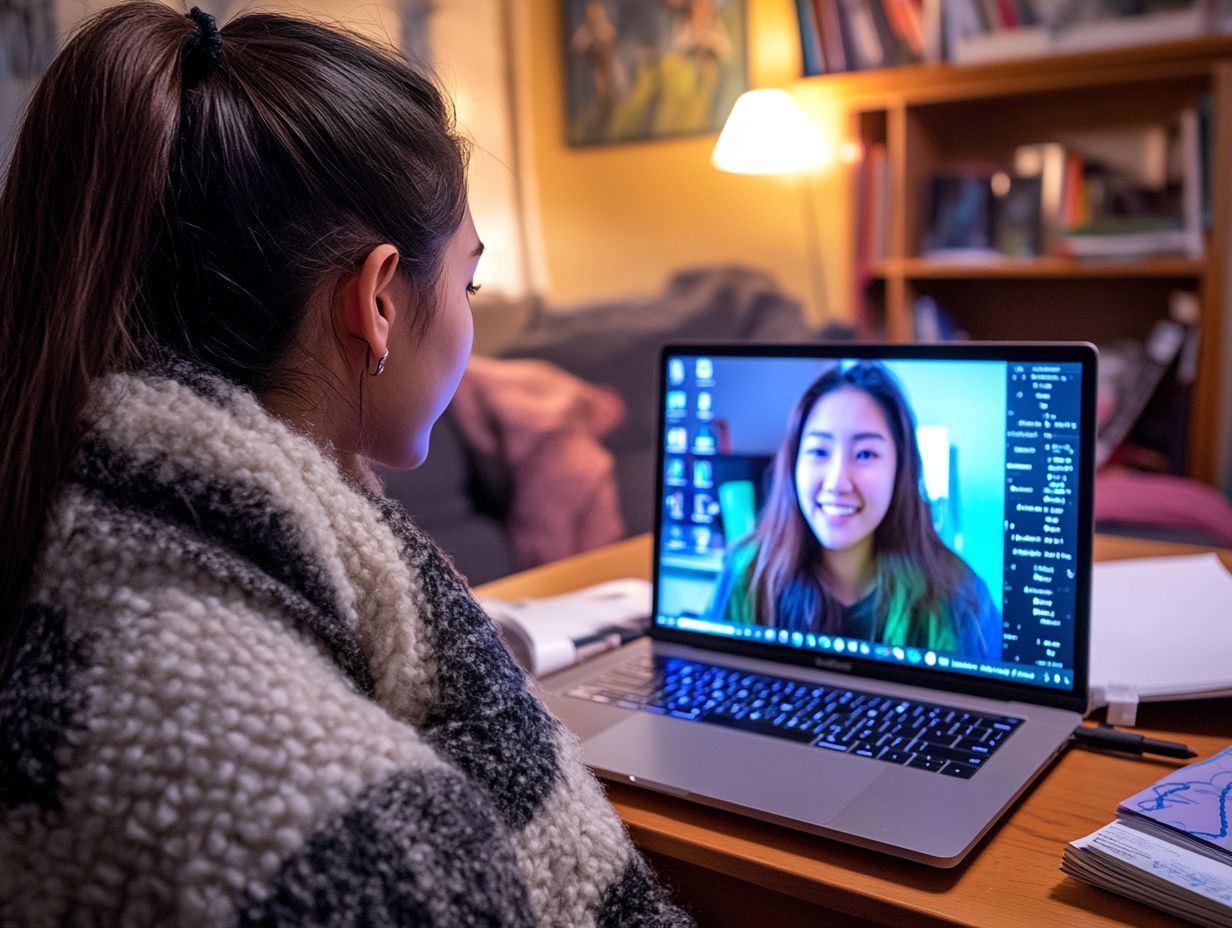How to Stay Connected with Faculty Online?
In today’s digital landscape, mastering effective online communication is crucial for your academic success. This article delves into a variety of virtual communication tools and platforms designed to foster meaningful interactions between you and your faculty.
You ll find strategies for cultivating strong relationships, addressing common challenges encountered in online communication, and discovering best practices for maintaining solid connections.
Whether you’re navigating the complexities of remote learning or aiming to enhance your engagement with instructors, this guide offers valuable insights to keep you connected.
Contents
- Key Takeaways:
- Tools and Platforms for Online Communication
- Effective Strategies for Staying Connected
- Challenges and Solutions for Online Communication
- Best Practices for Online Faculty Communication
- Frequently Asked Questions
- 1. How can I stay connected with my faculty online during remote learning?
- 2. What are some best practices for communicating with faculty online?
- 3. How can I stay organized when communicating with multiple faculty members online?
- 4. Is it appropriate to contact my faculty outside of their designated office hours?
- 5. How can I build a strong connection with my faculty online?
- 6. Can I use social media to connect with my faculty online?
Key Takeaways:

- Utilize a variety of virtual communication tools and platforms, such as video conferencing and messaging apps, to stay connected with faculty online.
- Building strong relationships and regularly maintaining contact with faculty can lead to a more beneficial and successful online learning experience.
- Address common obstacles, such as tech issues and time zone differences, by having open communication and utilizing available resources and support.
Why it Matters for Students
Understanding the importance of effective communication in online learning environments is vital for your success don t miss out! Strong relationships with your professors can significantly enrich your educational experience, helping you feel more connected, even when you’re physically distant.
Online classes can sometimes lead to feelings of isolation. Proactive communication can bridge that gap, ensuring you feel supported and engaged. By emphasizing your academic interests and providing regular feedback, your instructors can guide you through your studies more effectively.
Ultimately, the aim is to cultivate an environment where you feel empowered to ask questions and actively participate in your learning journey.
In the realm of digital learning, effective communication is the backbone of meaningful interactions that enrich your online experience. When educators engage with you through various digital platforms, they foster a sense of community that motivates you to participate and share your thoughts.
When communication flows freely, it sparks your engagement and enthusiasm! This enhances your academic success, as you receive timely guidance tailored to your unique needs.
Building these relationships often leads to valuable mentoring opportunities, allowing you to explore common interests and seek career advice, thereby solidifying your connection with faculty and paving the way for your future success.
Tools and Platforms for Online Communication
In the ever-evolving realm of online education, choosing the right tools and platforms for communication is crucial for fostering engagement and collaboration.
Platforms like Zoom and Skype facilitate real-time interactions, while online course platforms such as Canvas create structured environments for meaningful academic discussions.
These communication tools are critical in supporting online programs, enriching the learning experience, and enabling effective dialogue between faculty and students.
By harnessing these digital mediums, you can create a space where you can easily share your academic interests and goals.
Overview of Virtual Communication Tools
Virtual communication tools such as Zoom, Skype, and Canvas are revolutionizing your interactions in online classes, providing you with essential platforms for engagement. These tools offer real-time video conferencing, chat capabilities, and organized content sharing, making it easier for you to connect with faculty and peers.
The integration of such communication tools fosters a sense of community and encourages your active participation in discussions, which is vital for a rewarding online learning experience.
Instructors can use screen sharing and breakout rooms to create engaging sessions for all learning styles. For example, Zoom s breakout rooms enable small group discussions, allowing you to collaborate closely on projects while receiving immediate feedback from your instructors.
This kind of personalized interaction not only enhances your understanding but also builds rapport, making you feel more comfortable expressing your thoughts and concerns.
Platforms like Canvas streamline assignment submissions and feedback, significantly improving clarity in communication, which helps you stay organized and motivated throughout your educational journey.
Start using these tools today to transform your online learning experience!
Effective Strategies for Staying Connected

Staying connected as an online student demands a deliberate approach. Employing effective strategies can profoundly elevate your learning experience.
Establishing connections with faculty and peers through proactive communication is vital for your academic success and for navigating challenges. By engaging in virtual office hours times when you can meet online to discuss your studies with your teachers actively participating in discussions, and asking insightful academic questions, you open the door to mentorship opportunities and cultivate meaningful relationships.
Regular feedback is crucial for clarity in communication. It ensures you can tackle any academic hurdles that may arise.
Building Relationships and Maintaining Contact
Building relationships with faculty is essential for your success in online learning environments. Engaging in mentorship programs and making personal introductions can significantly enhance your relationships with professors.
Identifying common interests and establishing respectful interactions can strengthen these connections. This creates a supportive network that encourages your academic growth and exploration.
Stay proactive! Reach out to your teachers to enhance your learning experience. By actively seeking opportunities to connect, you can gain invaluable insights and guidance while developing your professional network.
Establishing rapport with faculty aids your academic success and opens doors to collaborative projects and research opportunities. Mentors guide you through challenges, offering tailored advice that aligns with your specific interests and career aspirations.
Personal introductions can bridge gaps between classroom learning and real-world application, enhancing your confidence in your chosen field. Ultimately, prioritizing these relationships lays the foundation for a thriving academic community, where collaboration and support truly flourish.
Challenges and Solutions for Online Communication
Navigating the complexities of online communication is vital for elevating the learning experience and keeping you engaged in your studies. You may encounter common obstacles like feelings of isolation, limited interaction, and insufficient feedback, all of which can disrupt effective communication in remote learning environments.
By identifying these challenges, you empower educators to adopt meaningful solutions. This includes increasing the frequency of feedback and fostering active participation during virtual office hours.
Tackling these issues directly can cultivate stronger professor-student relationships and create a more supportive atmosphere for your learning journey.
Addressing Common Obstacles
Addressing common obstacles in online communication requires a clear understanding of student engagement and the repercussions of isolation. By embracing effective communication best practices, you can create a more engaging environment where students feel genuinely encouraged to ask questions and seek feedback.
Proactive strategies, such as regular check-ins and open discussion forums, can significantly reduce feelings of being alone and elevate the overall learning experience.
Along with these strategies, it s vital to acknowledge that diverse communication styles and technological challenges can create barriers. For example, some students may find navigating digital platforms daunting, which can lead to frustration and disengagement.
Therefore, offering training sessions on tools and technologies is not just beneficial; it s essential.
Promoting a culture of feedback allows students to voice their concerns and share their experiences. This approach boosts their confidence and gives educators the power to refine their methods, ensuring that everyone feels valued and heard in this virtual learning landscape.
Don’t wait start connecting today for a richer academic journey!
Best Practices for Online Faculty Communication

Implementing best practices for online faculty communication is crucial for creating a supportive space for students. It fosters an environment that encourages engagement and success.
Clear and concise communication paired with respectful interactions lays a solid foundation for effective online instruction. Prioritize transparency and accessibility. This creates a space where students feel at ease reaching out with academic inquiries or concerns.
These approaches enhance clarity and empower students to take an active role in their educational journey.
Tips for Successful Virtual Communication
Successful virtual communication relies on your ability to blend empathy with proactive effort. Strive to create an inclusive environment where students feel valued and their voices are heard.
Encouraging regular feedback helps build trust and support. This ultimately enhances the professor-student relationship and paves the way for academic success.
Ready to engage your students? Try these ideas:
- Initiate virtual office hours
- Utilize interactive platforms
- Incorporate diverse teaching methods that cater to various learning styles
Actively listen and address student concerns. This demonstrates genuine care and understanding, fostering meaningful interactions.
Providing timely and constructive feedback helps students feel supported. It encourages them to participate more freely in discussions. Implementing these strategies can significantly enrich the learning experience and showcase your commitment to student success and well-being.
Frequently Asked Questions
1. How can I stay connected with my faculty online during remote learning?
One way to stay connected with faculty online is to regularly check your email for updates and announcements. You can also utilize virtual office hours and video conferencing platforms to communicate with your professors.
2. What are some best practices for communicating with faculty online?

Always maintain a professional tone when communicating with faculty online. Use proper grammar and punctuation, and address your professors respectfully. Be specific and concise in your messages.
3. How can I stay organized when communicating with multiple faculty members online?
Consider creating a separate folder in your email for each faculty member and label them accordingly. This will help you keep track of important messages and avoid confusion.
4. Is it appropriate to contact my faculty outside of their designated office hours?
Respect your faculty’s designated office hours. However, if you have an urgent matter or need clarification on an assignment, send a polite email requesting assistance. Keep in mind they may not respond immediately outside of their office hours.
5. How can I build a strong connection with my faculty online?
Take advantage of virtual meetings with your faculty and participate actively in class discussions. Showing your engagement and interest in the course helps build a strong rapport with your professors online.
In most cases, it is not appropriate to use social media to communicate with your faculty. Stick to official channels like email or virtual office hours to maintain a professional relationship.
Start applying these tips today for a better virtual learning experience!






